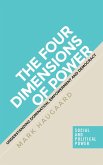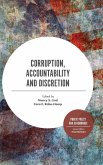"Everyone sees what you appear to be, few experience what you really are." The Prince is generally labelled as a cynical and overly pragmatic account of gaining and retaining political power. It is a significant deviation from the righteous meditations of Plato and Aristotle, which emphasise the goodness of human nature. Living in a harsh political climate, Machiavelli devised a more practical and true-to-life guide for leaders who cannot possibly be always good and just. For instance, he talks among other things about the importance to inflict pain all at once but distribute the rewards available gradually and in limited amounts. Besides, the idea that 'the ends justify the means' had never been featured in literature so prominently and openly before. Far-fetched at first glance, Machiavelli's insights after some analysis starts making practical sense when every state and society need to maintain one thing - stability. Although not idealistic, the text is undeniably valid as we can easily track the Prince's features in the best and the worst political leaders of the previous century who are united by the amount of power they were able to exerts - from political heroes such as Churchill and JFK to fascist and communist dictators. In the modern world, The Prince is a viable manual of conduct more than ever with the intense demand for competitiveness not only in the political but equally in business and other spheres. The text is also famous for being written in the vernacular rather than in classical Latin. What might surprise modern readers is that, actually, this peculiarity halted the text's dissemination across Europe as most translations were still done from Latin. The text nevertheless has reached its audience and become one of the most recognizable and accessible reads on politics and leadership.








